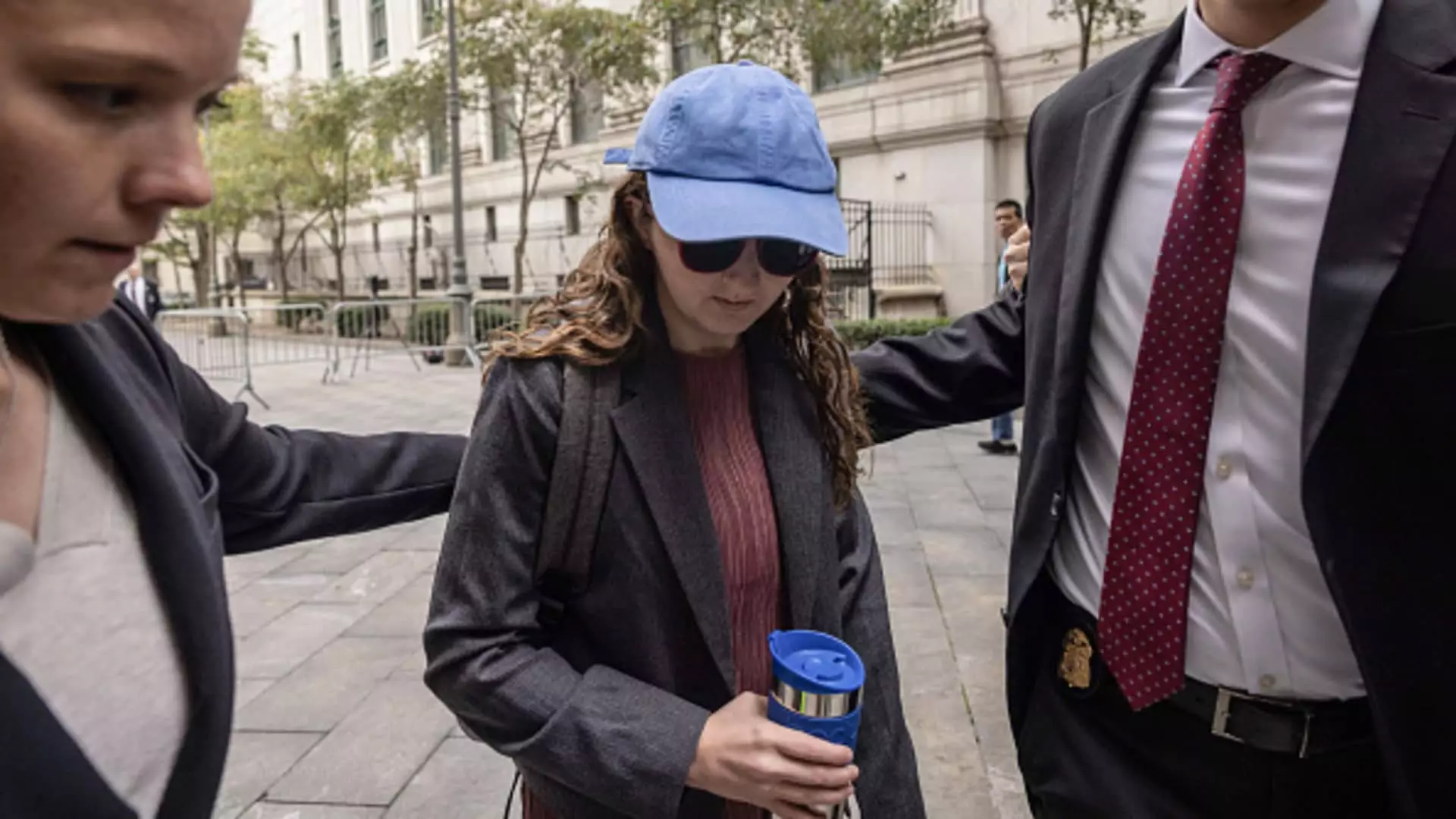The collapse of the cryptocurrency exchange FTX, formerly valued at an astounding $32 billion, continues to make headlines as legal repercussions unfold. At the center of this turmoil is Caroline Ellison, the chief witness in the prosecution against her ex-boyfriend, Sam Bankman-Fried, the founder of FTX. The fallout from this case highlights significant issues in the regulation and oversight of financial practices within the cryptocurrency market, especially given the rapid growth and subsequent decline of FTX, which has become a cautionary tale within the industry.
On a recent Tuesday, Ellison was sentenced to two years in prison by Judge Lewis Kaplan in a New York federal court. This sentence significantly deviates from the federal Probation Department’s recommendation, which suggested a mere three years of supervised release without any time behind bars. The harsher punishment signals a strong judicial stance against those involved in the intricacies of financial fraud within the cryptocurrency sector. As the head of Alameda Research, a hedge fund closely linked to FTX, Ellison’s actions played a crucial role in the fraudulent activities that led to FTX’s downfall. Her subsequent plea deal in December 2022 allowed her to testify against Bankman-Fried, showing the dynamics of cooperation among defendants in white-collar crime cases.
Ellison’s cooperation with authorities follows a familiar pattern seen in high-profile financial crime cases where defendants who assist prosecutors typically receive more lenient sentences. Her decision to plead guilty to conspiracy and financial fraud charges underscores a calculated strategy that often favors those willing to turn against their co-conspirators. While Bankman-Fried opted for a trial and was convicted on multiple fraud charges, receiving a staggering 25-year prison sentence and a similar forfeiture of $11 billion, Ellison’s plea bargain illustrates a different route through which defendants navigate the complex web of judicial processes in financial misconduct cases.
Future Perspectives on Cryptocurrency Regulation
The repercussions of this case extend beyond just the involved individuals; they raise essential questions regarding the future of cryptocurrency regulation and the safety of investor funds in such volatile markets. As cryptocurrency remains a relatively unregulated space, incidents like the FTX scandal highlight the critical need for stricter compliance and oversight to prevent future fraud. The lengthy sentences handed down in these cases could serve as a deterrent but also expose the inadequacies in current regulatory frameworks, prompting calls for reform in how cryptocurrencies are governed.
As the FTX saga continues to unfold, it serves as a poignant reminder of the potential dangers inherent in the cryptocurrency world. Investors must remain vigilant and informed, understanding the legal landscape and the implications of corporate wrongdoing. The case of Caroline Ellison not only emphasizes the consequences faced by those who engage in fraudulent activities but also reinforces the necessity of robust regulatory structures to protect stakeholders in this burgeoning industry. As the market evolves, so too must the frameworks that govern it.


Leave a Reply
You must be logged in to post a comment.